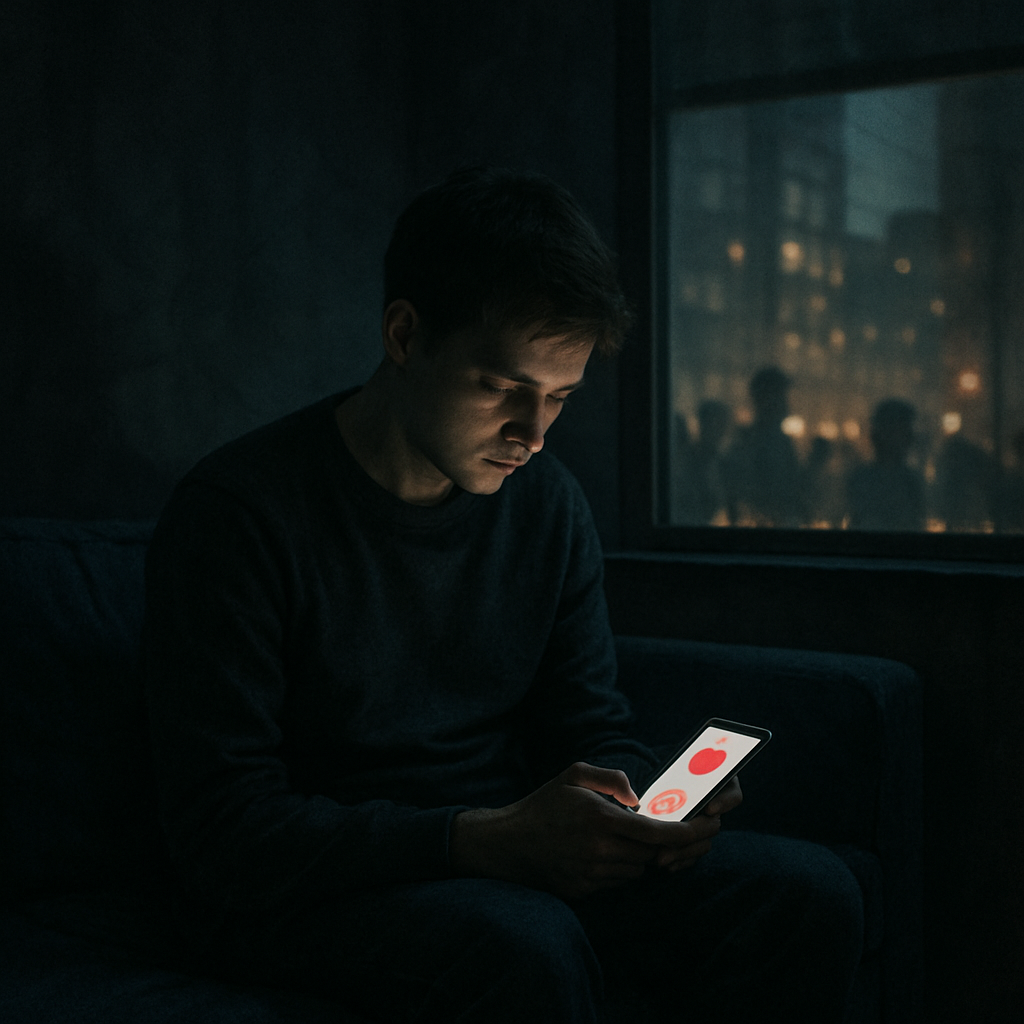Why Your Dating Profile Is a Beautiful Lie 🎭
Research consistently shows that nearly everyone engages in some form of deception on dating apps. This isn’t necessarily malicious—it’s a natural extension of how emotional bytes work. Our brains construct simplified narratives about ourselves, highlighting certain traits while minimizing others. When creating dating profiles, we instinctively select emotional bytes that present us in the most appealing light.
The problem is that dating apps create a perfect environment for what I call “selective disclosure”—where we consciously or unconsciously filter which emotional bytes we share. Everyone crafts an idealized persona based on what they think potential partners want, not who they actually are at 7 AM with a hangover. 😴
Have you ever noticed how dating app personalities often disappear once you’re in a relationship? That’s because maintaining those carefully curated emotional frames requires tremendous energy. Eventually, everyone reverts to their authentic emotional scripts—those automatic behavioral patterns that feel natural and inevitable to them but may surprise a partner who only knew the “marketing version.”
The Invisible Structures You Never See Coming 🔍
The most significant relationship challenges often stem from invisible structures that dating apps can’t possibly reveal. These include unspoken expectations about money, deeply ingrained family dynamics, or how someone behaves under stress. These structures operate below conscious awareness but fundamentally shape relationship experiences.
For example, studies have found that attachment styles—secure, anxious, avoidant, or disorganized—dramatically affect relationship behaviors but rarely appear in dating profiles. Your partner’s tendency to withdraw during conflict or become clingy when stressed isn’t something they’re hiding—it’s a fundamental emotional script they may not even recognize in themselves. 🧠
These invisible structures reveal themselves only through direct experience over time. No amount of profile text or video chats can surface how someone’s needs hierarchy functions under relationship pressure. Will their need for autonomy override their need for connection when things get tough? Dating apps simply cannot predict this.
Building Actual Relationship Intelligence 💡
So what’s the solution? First, recognize that dating apps serve only one function well: introducing you to people you wouldn’t otherwise meet. Everything beyond that initial connection requires developing meta-emotional intelligence—the ability to understand the systems creating emotions, not just managing the emotions themselves.
Instead of trying to avoid surprises (impossible), focus on building emotional granularity—the capacity to make finer distinctions between emotional states. This skill helps transform overwhelming relationship challenges into manageable experiences. When you can accurately identify what you’re feeling and needing, you can communicate these states effectively rather than reacting from automatic scripts.
The healthiest approach isn’t expecting complete transparency from dating profiles but assuming they represent approximately 30% of a person’s actual complexity. The other 70%? That’s what dating is supposed to reveal—if you’re paying attention to the right signals instead of just confirming your initial hopes. 📊
The truth is, no one is fully transparent on dating apps because no one is fully transparent with themselves. We’re all walking collections of emotional bytes, frames, and scripts that developed long before we downloaded Tinder. The real question isn’t what they should have told you—it’s whether you have the emotional toolkit to navigate the inevitable surprises. 🛠️
The greatest relationship skill isn’t finding the perfect match—it’s developing the capacity to work with the imperfect human you actually chose. ❤️
Still puzzling through the emotional bytes your partner never shared? I’d love to hear your stories. 💬
– Sophia Rivera, who once dated a man who “forgot” to mention he was still living with his ‘ex’.
https://news.stanford.edu/stories/2018/04/big-little-lies-mobile-dating
https://journals.library.ualberta.ca/cjfy/index.php/cjfy/article/download/29869/21782
https://scholars.wlu.ca/cgi/viewcontent.cgi?article=1002&context=coms_mrp
http://journalofhealthstudies.in/uploads/229/14755_pdf.pdf
https://journals.sagepub.com/doi/full/10.1177/1461444818792425
http://edl.emi.gov.et/jspui/bitstream/123456789/1377/1/exploring-social-psychology_compress.pdf

